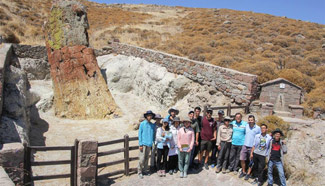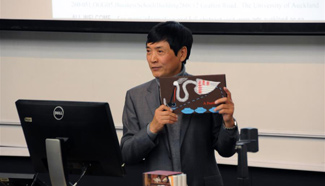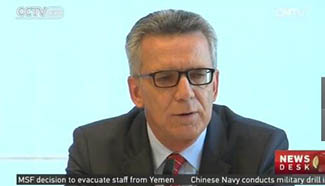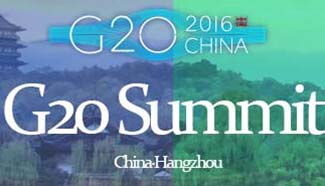By James Lee
BEIJING, Aug. 20 (Xinhuanet) -- Autonomous driving is making significant headway in the automobile industry, where multiple players, such as traditional automakers, parts makers and IT firms, have invested heavily in the R&D and manufacturing of self-driving cars. While companies in various sectors are jostling for automated driving technology, the stakes are essentially growing higher and higher for some countries eager to set the rules.
“Japan and major European nations will compile common standards for self-piloting cars that could take effect in 2018,” according to Nikkei Asian Review. Meanwhile, Japan and its European partners are cooperating to urge the US, which is ahead of other countries in developing driverless cars, to adopt their common standards.
But would all parties concerned reach consensus on self-driving technology standards, given the fact that they failed to find common charging standards for new-energy vehicles despite years of efforts? In a scramble to establish standards, who is going to be the ultimate winner?
From Corporate Competition to State Rivalry
In recent years, high-tech giants and EV behemoths in Silicon Valley have made investments in autonomous driving technology. Data from Google Self-Driving Project suggest that it has self-driven more than 1.5 million miles since it began testing the technology in 2009. By the end of 2015, Tesla’s Autopilot system has already been installed on some of its EVs.
The rivalry between high-tech firms and automakers has resulted in a debate about who should dominate driverless technology. But for now at least, it’s hard to see which side gets the upper hand.
Unfortunately, a Model S car made by Tesla Motors recently made news when it crashed while in driverless mode. The accident once again necessitates unifying standards for self-driving cars.
The auto magnates have realized from early on the importance of common technical standards to series production and commercialization of autonomous cars, hence breeding a variety of cross-industry collaboration. Earlier last month, BMW, the world’s largest luxury carmaker by sales, declared to team up with computer chip maker Intel and collision detection specialist Mobieye to define an open platform for autonomous driving.
Establishing common standards on self-driving cars is looming large on the horizon, extending far beyond the corporate arena. Japan’s joining forces with the European countries is just an attempt to set rules for self-driving cars to be adopted globally.
Standards to Be Unified?
Even Google and Tesla have not yet shown, at least so far, any sign of developing common standards. So on the corporate front, the chances of unifying standards seem to be quite slim in the near future.
But at the state level, it’s easy to see the progress in the making. Japan and the EU attempted to give full play to the role of the United Nations, which has set up an expert panel working on compiling common standards for autonomous driving technology. The panel members include representatives from Japan, South Korea, Germany, France, Britain and the European Commission.
The UN expert panel is expected to reach a broad agreement within months before Japan and the European countries create domestic certification and other systems.
The year 2020 is seen by many industry insiders as a watershed in the course of self-driving capability development, when autonomous driving technology will be much more sophisticated and some highly-automated driving cars will hit the road. But would unified standards for self-driving technology arrive ahead of 2020? Let’s just wait and see.










